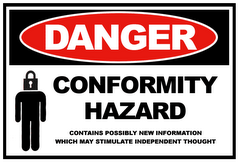What is a Mistake?
It is easy to beat yourself up for making that ‘stupid losing trade’, but is that really a mistake if you followed your trading rules, entered when you should have, used the correct position size, added to or reduced your position size when you needed to, and exited when you should? Losing trades, weeks, months, and even years are a normal part of trading, and it is much more useful to define a mistake in a way you can a) detect it, and b) fix it so it should not happen again.
My definition of a trading mistake that needs to be identified and fixed is one of the following circumstances:
- I did not stick to my pre-defined trading system, method, or rules
- I discovered my trading business plan was incomplete or inconsistent
- I chose (or was forced to) modify my trading rules intra-day
- I traded when I did not pass my daily ‘self test’
- I did not perform my daily, weekly, monthly, quarterly, or yearly review
- I tried to blame someone or something else for a trading mistake
Note that none of these circumstances has anything to do with making a losing trade, or going through a drawdown. They are all to do with trading discipline and the procedural aspects of implementing your trading system accurately. In fact, I actually track the impact of my trading mistakes by calculating how much I actually made trading versus what my systems should have made if I had performed with 100% accuracy.
If you calculate this ‘error’ value as a percentage of your trading profit, you will have a ‘discipline score’ which tells you how much of a (usually negative when you are inexperienced) effect you are having on your trading implementation.
Note that blaming other circumstances for errors is a mistake in itself. For example, if your connection to your broker goes down and you can’t exit a position in time, this is your mistake for a) choosing the broker, b) choosing to trade, and c) not having a contingency plan and alternative broker for exactly this (common) situation.
If you pre-define what a mistake looks like, and take personal responsibility for them, and also put procedures in place for preventing the same mistake happening again, you will be a long way towards being a disciplined and accurate trader with a significant edge
Paul King
PMKing Trading LLC
Source: http://www.pmkingtrading.com

No comments:
Post a Comment